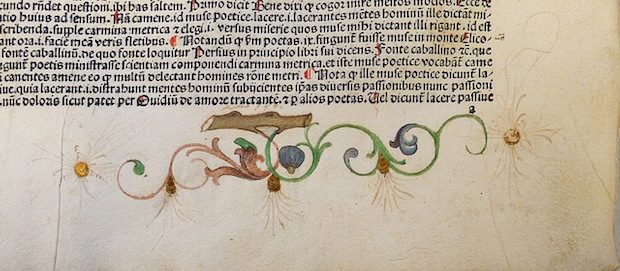The Great Book That Saved Your Life

A reader writes:
I just wanted to take a moment to congratulate you on the publication of ‘How Dante Can Save Your Life’. The book does indeed look beautiful. And I will be ordering it for the store I work at as soon as possible. And I will be reading it and hopefully reviewing it for my poetry blog.
I have felt a special connection with your posts about the healing power of Dante. I had a similar experience, but with another one of the great classics, “The Consolation of Philosophy” by Boethius. It was over 12 years ago now. I was diagnosed with skin cancer and scheduled for surgery. The surgery was more extensive than one might think upon hearing the diagnosis and a hospital stay was required. As I was leaving my house I had a small collection of things to take with me. I suddenly realized I hadn’t put any books into the small piece of luggage. I was feeling very anxious. I looked at my books in my room and none of them really spoke to me and to my situation. And then I saw on the shelf the ‘Consolation’. I grabbed it and put it in with my other things.
It turned out to be perfect. It really spoke to me in my condition. Not that I was in prison, or that I was about to be executed. Those were Boethius’ specifics. But the book spoke about mortality, and how life inevitably has its ups and downs, how little we actually control, and how a kind of peace comes with acceptance. To this day I am so grateful for Boethius and his ‘Consolation’. I have recommended this book to quite a few people in the ensuing years and every one of them has found the book rewarding and helpful in a time of need.
Like Dante, Boethius was Christian and Catholic (in the Catholic Church he is a Saint; his feast day is October 23rd). The ‘Consolation’ is less overtly Catholic than the Divine Comedy. But the world view is tangibly the same; that there is a transcendental reality and that it is there that one finds meaning, and consolation, in life.
There is another way that the ‘Consolation’ resembles Dante and that is that a large portion of the ‘Consolation’ is in poetry. The book alternates between prose sections and sections written in verse. The edition I took with me to the hospital was a Loeb Classical Library edition that had the original Latin facing the English translation. This allowed me to read the poetry sections as poetry which, I feel, deepened the experience.
I have had no recurrence of my diagnosis for which I am very grateful. But at a deeper level I am grateful that someone like Boethius can speak to me across the centuries, one human being to another, offering solace and comfort.
That’s so great. It reminds me of Gary Saul Morson’s recent Commentary essay about Anna Karenina. Excerpt:
In his daily work, Levin comes to appreciate the importance of the ordinary and prosaic. If one lives rightly moment by moment, and trusts that daily practice has its own wisdom, then the questions troubling Levin are not exactly answered, but they disappear. When Levin recognizes these Tolstoyan truths, he is overcome with joy:
I was looking for miracles, regretting that I had not seen a miracle that might convince me. But here is a miracle, the sole miracle possible, existing continuously, surrounding me on all sides, and I didn’t notice it!…I have discovered nothing. I have only recognized what I already knew….I have been freed from falsity, I have found the Master.
In his time, Tolstoy was known as a nyetovshcik—one who says no (nyet) to what almost all educated people believed. If anything, his views are even more at odds with educated opinion today. In this novel’s rejection of romantic love, in its challenge to the inauthentic ways intellectuals think, in its trust in practice over theory, and above all, in its defense of the prosaic virtues exhibited by Dolly—in all these ways, Anna Karenina challenges us today with ever-increasing urgency.
Morson’s essay about the “moral urgency” of the Tolstoy novel makes it clear how a book like that could save one’s life. (It also makes me want to return to Anna Karenina.) If Francesca da Rimini, the damned adulteress of Dante’s Commedia, had had been able to read Tolstoy instead of the story of Lancelot and Guinevere, her life and fate might have been different.
So, question to you: was there ever a single book, other than the Bible, the Koran, or a holy book, that saved your life, in the sense that it brought you back to reality, or kept you from making a serious mistake? If so, what was the book, and how did it work for you?
Subscribe for as little as $5/mo to start commenting on Rod’s blog.